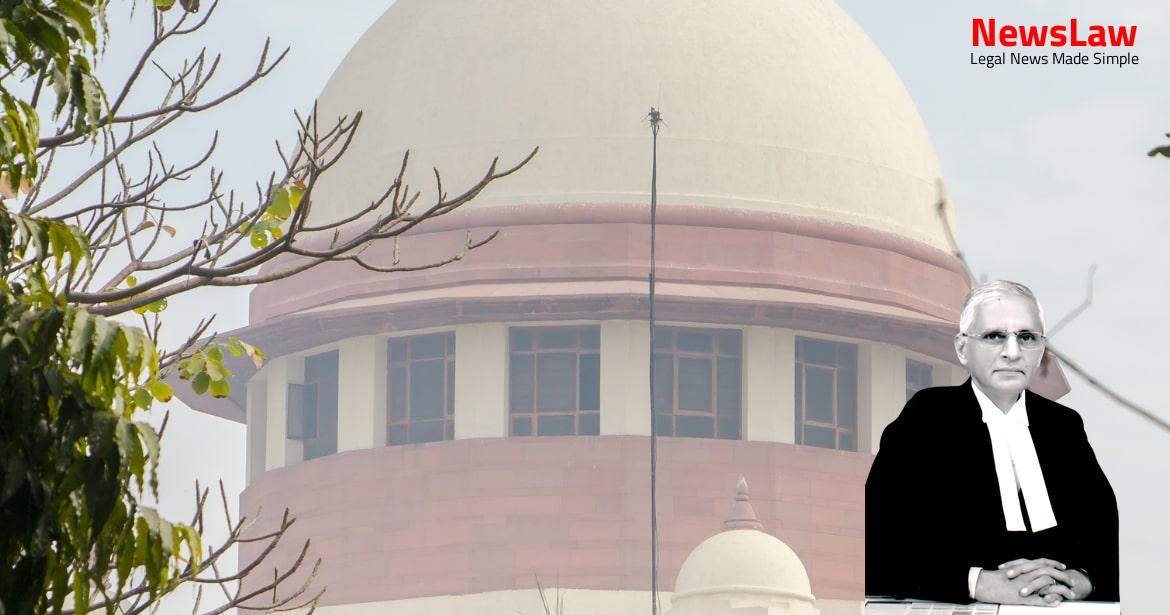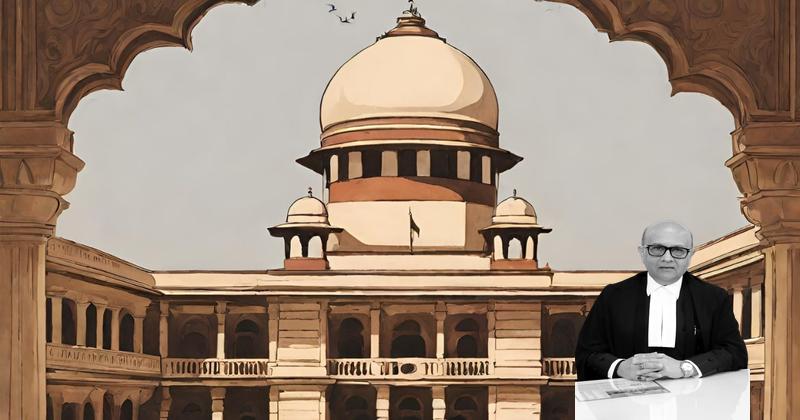To the extent necessary, we shall now trace the history as follows:- (i) Till the year 2005, the Ministry of Finance, Government of India had nine production units namely, four India Government Mints, two Currency Note Presses, two Security Printing Presses and one Security Paper Mill under its control. In the year 2006, a wholly owned Company under the name and style of ‘Security Printing & Minting Corporation of India Ltd.’ was incorporated on 13.1.2006, for the purpose of taking over the management, control, maintenance and operations of those nine production units which were functioning under the Currency and Coinage Division of the Department of Economic Affairs, Ministry of Finance, Government of India. (v)
In the year 1988, a group of eight persons working as Supervisors, Works Engineer, Section Officer, etc., in the Currency Note Press, Nashik, filed a writ petition on the file of the High Court of Judicature at Bombay in Writ Petition No.3150 of 1988, claiming overtime allowance.
(vi) Challenging the said order of the Tribunal dated 25.7.1997, a few writ petitions came to be filed on the file of the High Court of Judicature at Bombay. Biswas and others, the writ petitions already pending and arising out 5 of earliest writ petition of the year 1988 were also allowed and the matter remanded back to the Tribunal for a fresh consideration. (xii)
In the meantime, the Corporation had come into existence and, hence, the Union of India as well as the Corporation, along with the India Security Press and Currency Note Press filed a batch of writ petitions challenging the second 6 order of the Central Administrative Tribunal dated 9.6.2010.
(xiv)
By a common order dated 28.6.2018, the High Court of Judicature at Bombay dismissed all the writ petitions filed by the Union of India and the Corporation. But it was argued on behalf of the Union of India that under Section 64(1) of the 1948 Act, the State Government was entitled to make Rules exempting the application of the provisions of Chapter VI of the Act to certain categories of workers. After framing the issue as aforesaid, the Tribunal recorded a finding that the applicants before the Tribunal were doing clerical work as a part of their regular duties and that therefore they were excluded from the application of Rule 100 of the 1963 Rules, in view of the proviso contained therein. Thus, the Central Administrative Tribunal reached diametrically opposite findings of fact, in two different sets of cases filed by employees who were identically placed and discharging identical duties and responsibilities. Shri Dhruv Mehta, learned senior counsel appearing for the appellants contended, (i) that a perusal of the list of duties assigned to the respondents, as reflected by the ACRs clearly show that the respondents were performing supervisory duties, exercising control over 50 to 100 workers; (ii) that as per the law laid down by this Court in Burmah Shell Oil Storage and Distribution Company 10 of India Ltd.
(supra) cannot have any application to the case on hand, since the definition of the expression “workman” under the Industrial Disputes Act, 1947 is quite different from the definition of the same expression under the 1948 Act; (ii) that therefore the dominant nature test propounded in Burmah Shell Oil Storage and Distribution Company of India Ltd. Biswas in the above appeals and that therefore the orders of the Tribunal and the High Court do not call for any interference. Since the ‘Corporation’ was incorporated only on 13.1.2006 and all the nine production units coming under the control of the Currency and Coinage Division of the Department of Economic Affairs, Ministry of Finance, Government of India were transferred to the Corporation only with effect from 10.2.2006, the claim of the respondents obviously arose at the time when they were Central Government servants.
It is seen from sub-clause (i) of clause (q) of Section 3 extracted above that any issue relating to remuneration including allowances, is a service matter. Therefore, whenever a dispute relating to a service matter, which includes a claim for allowances, is raised before the Administrative Tribunal, the primary duty of the Tribunal is to see what is provided by the relevant Act issued under the main part of Article 309 or the Rules issued under the Proviso to Article 309. This is why the Fundamental Rules of the year 1922 continue to apply even now, to the holders of civil posts and those in the civil services of the Union or the State.
Unlike those employed in factories and industrial establishments, persons in public service who are holders of civil posts or in the civil services of the Union or the State are required to place themselves at the disposal of the Government all the time. The claim of the respondents before the Tribunal was not based on any statutory rule but based entirely upon Section 59(1) of the 1948 Act. In exercise of the power so conferred, the State of Maharashtra has framed Rule 100, which reads as follows:- “Rule – 100: PERSONS DEFINED TO HOLD POSITION OF SUPERVISION OR EMPLOYED IN A CONFIDENTIAL POSITION.
But the claim of the respondents is that the proviso embedded in Rule 100(1) makes the exemption inapplicable to those who are required to perform manual labour or clerical work as a regular part of their duties. But such an exclusion 20 is not there in the definition of the very same word “worker” in Section 2(l) of the 1948 Act. Definitions.—In this Act, unless there is anything repugnant in the subject or context,— xxx xxx xxx (s) “workman” means any person (including an apprentice) employed in any industry to do any manual, unskilled, skilled, technical, operational, clerical or supervisory work for hire or reward, whether the terms of employment be express or implied, and for the purposes of any proceeding under this Act in relation to an industrial dispute, includes any such person who has been dismissed, discharged or retrenched in connection with, or as a consequence of, that dispute, or whose dismissal, discharge or retrenchment has led to that dispute, but does not include any such person— (i) who is subject to the Air Force Act, 1950 (45 of 1950), or the Army Act, 1950 (46 of 1950), or the Navy Act, 1957 (62 of 1957); or (ii) who is employed in the police service or as an officer or other 2.
—In this Act, unless there is anything repugnant in the subject or context,— xxx xxx xxx (l) “worker” means a person employed, directly or by or through any agency (including a contractor) with or without the knowledge of the principal employer, whether for remuneration or not, in any manufacturing process, or in cleaning any part of the machinery or premises used for a manufacturing process, or in any other kind of work incidental to, or connected with, the manufacturing process, or the subject of the manufacturing process but does not include any member of the armed forces of the Union; 21 employee of a prison; or (iii) who is employed mainly in a managerial or administrative capacity; or (iv) who, being employed in a supervisory capacity, draws wages exceeding ten thousand rupees per mensem or exercises, either by the nature of the duties attached to the office or by reason of the powers vested in him, functions mainly of a managerial nature.
Deshmukh, learned counsel appearing for the respondents based upon the proviso to Section 64(1) of the 1948 Act read with Section 1(6) of the 1936 Act, cannot distract our attention. Thus, we find (i) that the Tribunal as well as the High Court did not consider the distinction between persons in Government service and those in private service and the effect of the statutory rules upon the conditions of service of the respondents, including their liability to work for extra hours; (ii) that the Tribunal reached diametrically opposite findings of fact in respect of persons holding similar supervisory posts; and (iii) that therefore, the orders of the Tribunal and the High Court are unsustainable. No order as to costs.
Case Title: SECURITY PRINTING CORPORATION OF INDIA LTD AND ORS ETC. Vs. VIJAY D. KASBE AND ORS ETC (2023 INSC 388)
Case Number: C.A. No.-002911-002920 / 2023



